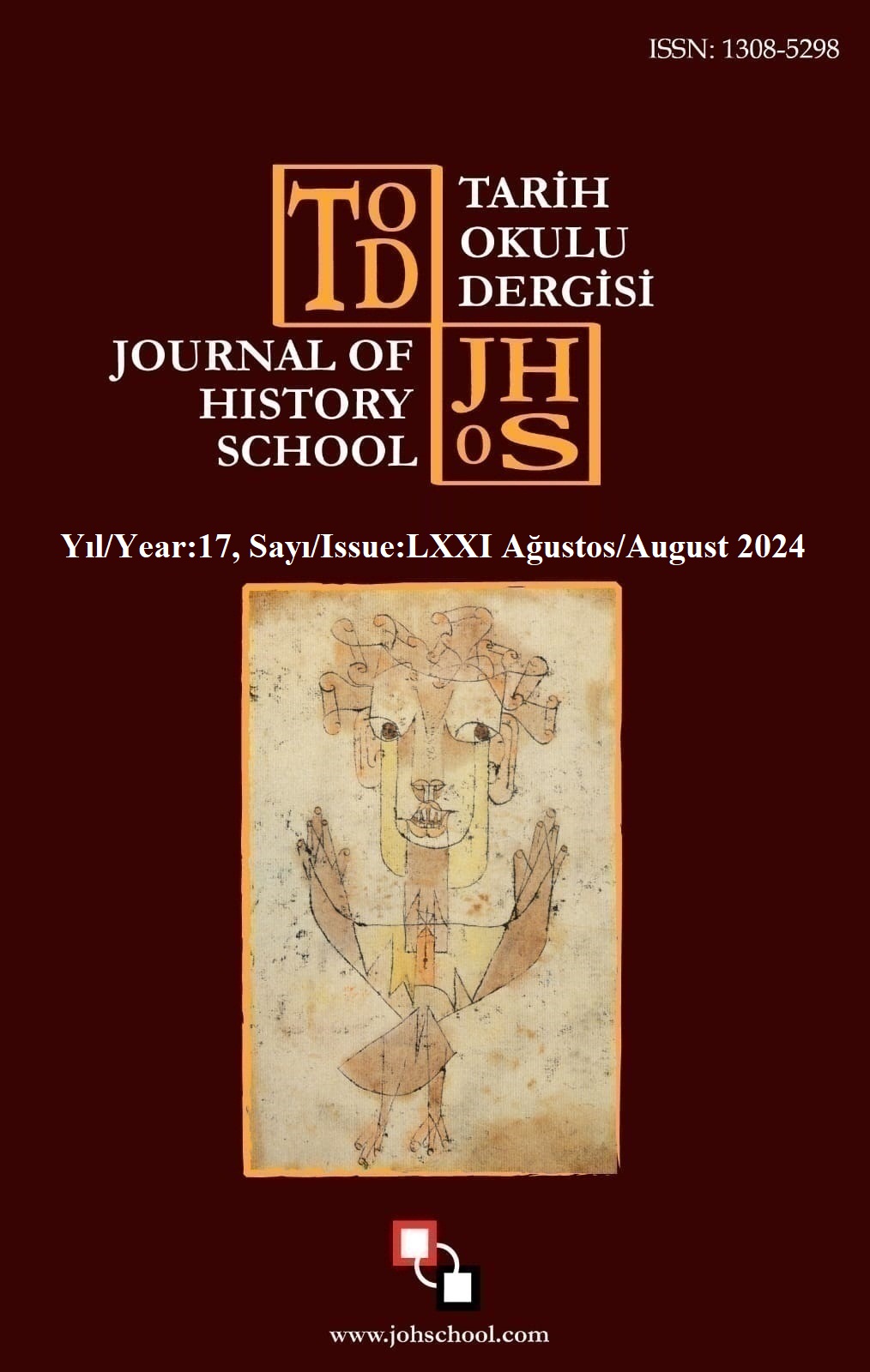Author :
Abstract
Osmanlı İmparatorluğunda ticari hayatın içerisinde yer alan sarraflar, iktisadi tarihin anlaşılması açısından araştırılması gereken konuların başında gelmektedir. Çünkü sarraflar, devletin vergi toplama hususunda birinci dereceden muhatap olduğu iltizam, mukataa ya da malikane sahibi olan kişilerin vekili ya da taahhütte bulunan aracıları olarak değerlendirilebilir. Taşradaki yöneticilerin iltizam için bir sarrafı kefil gösterme zorunluluğu, sarrafların hem devlet nazarında hem de taşra yöneticileri nazarında daha önemli hale gelmelerine neden olmuştur. Bununla beraber sarrafların, henüz bankacılık mekanizmasının oluşmadığı dönemlerde Osmanlı İmparatorluğu içerisinde talep edenlere belirli bir faiz karşılığında kredi sağladıkları görülmektedir. Bu bağlamda, sarrafların araştırılmasının hem sancakların hem de devletin ekonomisinde oynadıkları rolün etkinliği, zenginlik dereceleri ve bu zenginliğin sarraflara kazandırdığı nüfuzun anlaşılmasını sağlayacağı muhakkaktır. Araştırmanın amacı, devletin ekonomik sistemine dahil olan sarrafların özelde Maraş Sancağı’ndaki etkinliklerini saptamaktır. Çalışma, Maraş Sancağında faaliyet gösteren sarraflarla ilgili arşiv belgelerine dayandırılan ayrıntılı bir çalışmanın yapılmamış olması, bölgedeki sarraflık faaliyetlerinin gözlemlenmesi ve Osmanlı İmparatorluğunun diğer vilayet ve sancaklarıyla ilgili mevcut ve yapılacak araştırmalarla karşılaştırma imkânı sağlaması açısından literatüre katkı sağlayacaktır. Araştırma yürütülürken, konuyla ilgili Osmanlı Arşivi’nden elde edilen belgelerin tasnifi, doküman analizi ve transkripsiyonunun yanı sıra literatürden elde edilen çalışmalardan yararlanılmıştır.
Keywords
Abstract
Moneychangers, who were involved in commercial life in the Ottoman Empire, are top of the main topics that need to be researched in order to understand the economic history. Because moneychangers can be considered as the representatives or make a commitment intermediaries of the people who own the iltizam, mukataa or malikane with which the government is the primary degree interlocuter in terms of tax collection. The obligation of backwoods administrators to show a moneychanger as a guarantor for tax farming caused the moneychangers to become more important both in the eyes of the state and in the eyes of the backwoods administrators. However, it is seen that moneychangers to ensure loans in return for a certain interest to those who requested them within the Ottoman Empire, in the periods when the banking mechanism was not yet established. In this context, it is certain that researching the money changers will provide an understanding of the role effectiveness they play in the economy of both the sanjaks and the government, their degree of wealth, and the penetration this wealth brings to the moneychangers. The purpose of the research is to determine the activities of the moneychangers who are included in the economic system of the state, locally in the Maraş Sanjak. The study will contribute to the literature in terms of the fact that a detailed study based on archival documents regarding the moneychangers operating in the Maraş Sanjak has not been carried out, observing the moneychanging activities in the region, and providing the opportunity to compare with existing and future research on other states and sanjaks of the Ottoman Empire. While conducting the research, studies obtained from the literature as well as the classification, document analysis and transcription of documents obtained from the Ottoman Archives has been used.





